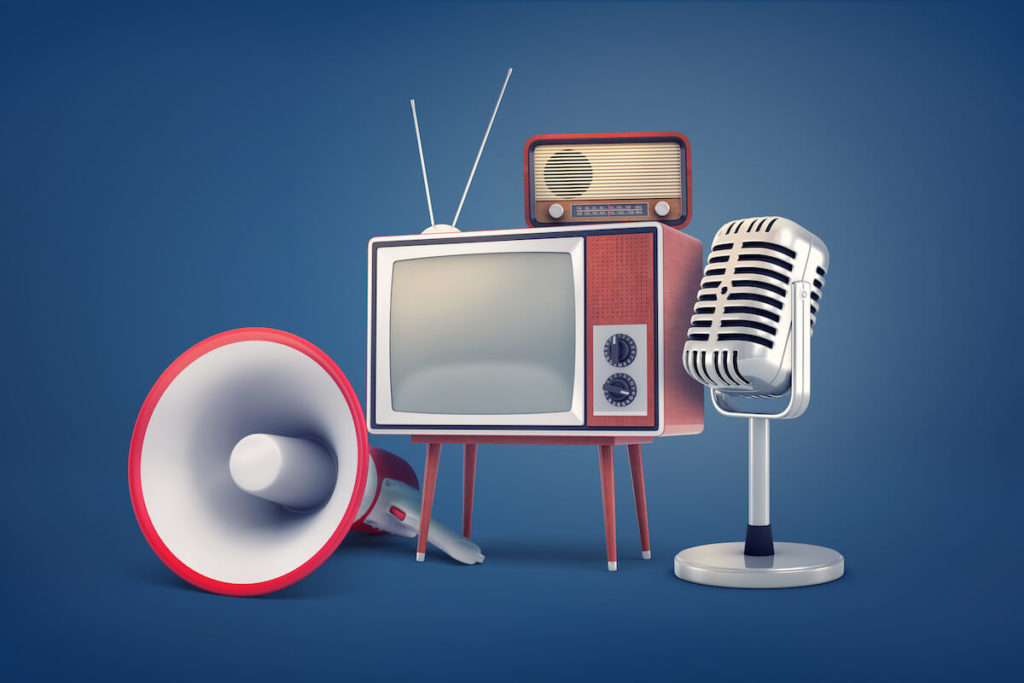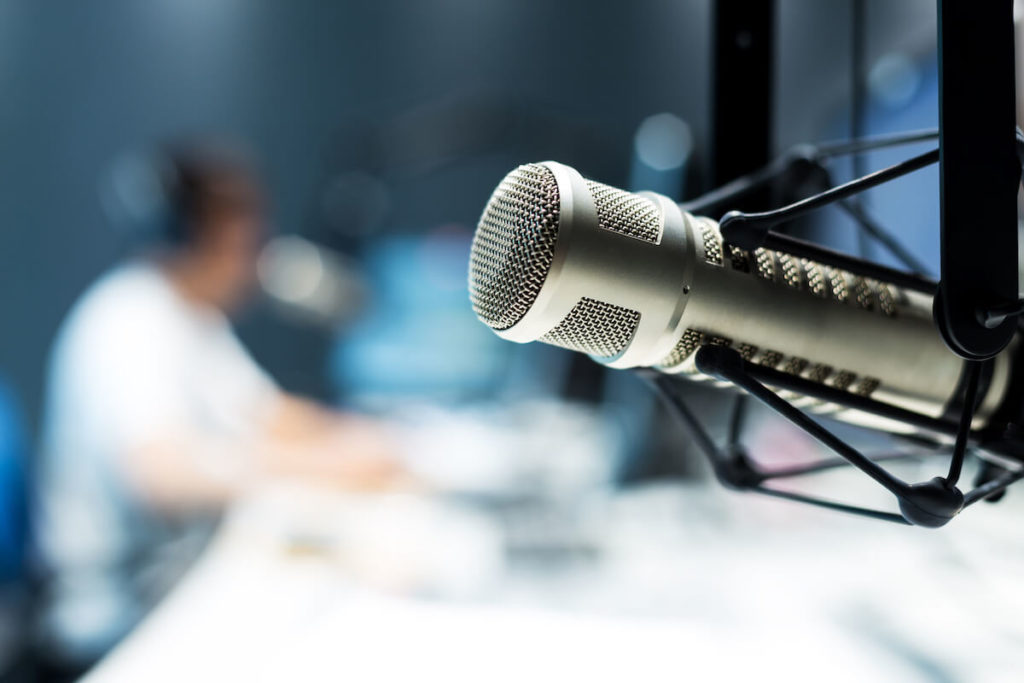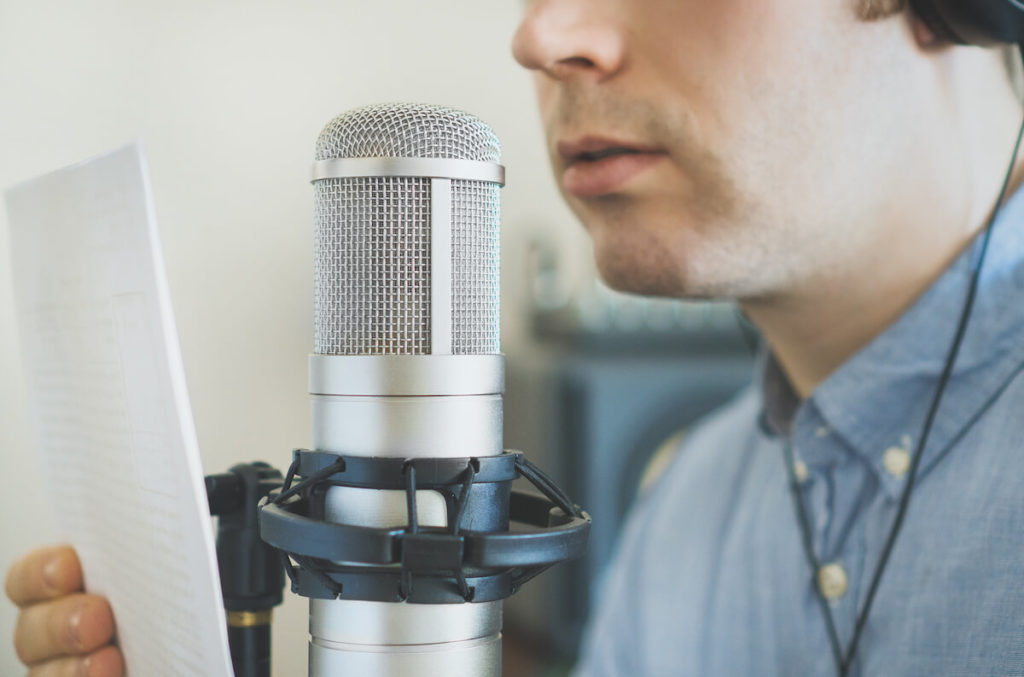
Imagine that you can shout your brand proposition in front of 10 million active listeners. You’d be interested, right? (Well, okay, maybe not shout, but you get the picture.)
Let’s face it: Businesses should not forget about radio sales. The power of radio advertising sales is all about connecting businesses and avid listeners of popular radio shows and relevant channels.
Over the past few years, the radio industry has evolved. New streaming offerings like Pandora, Spotify, TuneIn, and more provide unique opportunities to connect with listeners.
These media advertising campaigns should be incorporated into your overarching marketing strategy. If you aren’t trying them, you’re missing out. Big time.
After all, radio sales are an effective way to drive brand awareness and conversions for your company.
In this article, we’ll show you how your business can leverage radio sales to increase brand awareness and impact your bottom line.
Before we dive in, let’s take a look at where exactly radio sales falls in your overarching marketing strategy.
The role of radio sales in your marketing strategy

The role of radio sales in your marketing strategy is like cherry pie at a picnic: always a welcomed addition that sometimes can be the star of the show.
Radio sales can be an effective way to reach a targeted, local audience and create buzz about your product or service. In fact, the average company can earn a $12 return for every $1 invested in radio campaigns.
Radio stations often have a sales team pitching ad sales, sponsorship or new partnership opportunities for their stations or a specific show. You should evaluate these opportunities to understand how you can more effectively reach your audience and drive new sales with radio commercials and other types of unique audio-based advertisements.
For years, listeners have turned on the radio while they are driving to and from work, exercising, traveling and more. Now, with streaming radio, the age-old medium of radio has woven itself into the web and social media.
If you are focused on getting as many people to know about your company or product, consider placing a media buy to run a series of ads on the radio.
If you’re short on time and just need a “pop” of brand awareness, consider paying for a channel or show sponsorship. For more granular campaigns that highlight your value proposition, create a full-length commercial to run.
Why are radio sales so popular?

Radio outpaces other mediums when it comes to its competitive advantages. Depending on what you’re trying to accomplish, radio might be the most optimal fit for your business.
First, advertising on the radio is an excellent medium to reach a targeted, localized audience. You can reach many people on the radio. However, you can also be strategic with your ad placement and target your consumers based on the channel or music they listen to, when they listen, and where they live.
Secondly, it doesn’t necessarily cost much to launch a radio broadcasting ad campaign. Your radio spot can be quickly made with limited resources, or you can simply sponsor a radio show. All you need is a concise script and a voiceover to create a final cut of your spot.
Lastly, radio advertising campaigns provide a great value. In fact, they are 20% more cost-effective in driving brand awareness than other forms of media sales. In addition, research shows that radio campaigns increase brand searches by 29% on Google. Radio sales often drive first-time customers who may be local or interested in trying new products.
The perfect business for radio sales

They might not be a silver bullet for your marketing strategy, but radio sales are definitely a round of ammunition you want to have in your back pocket.
While most businesses can benefit from advertising on the radio, certain companies will truly excel with a comprehensive radio ad campaign. And no, we’re not talking about major corporations or local companies.
Companies that should consider leveraging radio sales are:
- Looking for a way to reach customers in a specific geographical area
- Interested in budget-friendly marketing techniques
- Focused on reaching a specific subset of their audience through targeting by brand affinity (i.e. what music they listen to) or demographics
- Prepared to support their radio sales efforts with complimentary marketing tactics
These are just some of the criteria that would make a business a natural fit for radio advertising. There are often exceptions, but the most common businesses that excel with radio advertising fit one or more of the above criteria.
Measure your company against the guide above, and consider talking to a sales representative about the radio advertising opportunities.
Using radio sales to drive revenue

In order to understand the effectiveness of radio, you need to see a campaign in action.
Sierra Service Center, an automobile company, launched a radio campaign after it struggled to drive customers into their stores through print, digital, and social advertising tactics.
The company launched 30-second radio ads that played in the Tucson, Arizona market.
The ad campaign drove over 10 million impressions over two months, and the company’s owners shared that many people came into the store mentioning that they had heard the ad.
Measuring radio campaign effectiveness
The success of radio advertising campaigns can be measured by many different metrics. These metrics can include:
- Impressions
- In-store traffic or site visits
- Conversions or purchase value
For some, impressions might be the key performance indicator that shows how their brand is getting in front of a desired audience. Other campaigns may examine how many people actually come into the store or visit their website.
Most campaigns, ultimately, want to drive sales. Tracking the total number of conversions that use a promo code or mention the radio ad at checkout can help businesses determine the entire return on investment for that specific ad campaign.
Radio vs. podcast vs. programmatic audio

With the popularity of podcasts steadily increasing over the years, there are more audio-based advertising opportunities than ever before.
But how should you know which is right for you? Should you advertise with a radio ad or consider a podcast product placement? Maybe a programmatic audio campaign is right for you.
There are distinct benefits to both radio sales and podcast sales as well as a programmatic audio ad campaign.
Radio ads
With radio advertisements, businesses can target their customers based on local geographic data. For example, if you’re advertising on a local radio station, you know that their listeners are within the city’s limits.
Radio ads are sent out over the airwaves, which makes it difficult to target based on behavior and demographics. You can estimate the listeners, but you won’t be able to get granular with your targeting and won’t get a ton of audience data back for your campaign.
Lastly, you will have more creative freedom with your radio ads than podcast ads. Most podcasts prefer to have the host read a script that highlights your product or announce your business as the partner for the show.
Podcast ads
Podcast listeners, on the other hand, may be spread out across multiple regions. That’s why podcasts can be an effective medium to target customers based on their interests and brand affinities. If you’re selling a new tech product or some type of gadget, you might consider advertising on tech-focused podcasts.
Rarely do podcasts have ads with complete jingles and commercials like so many are used to on the radio. Instead, podcast hosts often opt to guide the creative process of the ad to ensure it is aligned with the show’s overall tone, brand, and feel.
Another major difference between radio sales and podcast sales is that the offerings may be more commonly packaged across multiple stations for radio ads. Since many stations and channels might be owned by the same parent company (i.e. iHeartMedia), you might be able to get more cost-effective pricing and additional exposure across many different markets.
Programmatic audio campaigns
Programmatic audio campaigns use real-time ad auctions to update the price of the accessible audience. This function enables you to reach potential customers where they are listening. You can target based on behavioral and demographic data points, making it easy to measure your campaign’s success more effectively.
By understanding the differences between podcast, radio, and programmatic audio ad sales, you can decide which medium is right for you to drive sales and awareness for your business.
Mastering the airwaves

Radio sales are an investment that often pay off. An engaging radio ad with proper placement can attract customers to your site. This tactic is an amazing way to reach a captive, localized audience who may have an interest in your product or service at a low cost.
With the right radio ad strategy in place, you can take advantage of radio sales and deploy effective ads that reach your customers in meaningful ways.
Start increasing your brand awareness with audio ads. Sign up to start to grow your business with audio through Decibel’s technology.